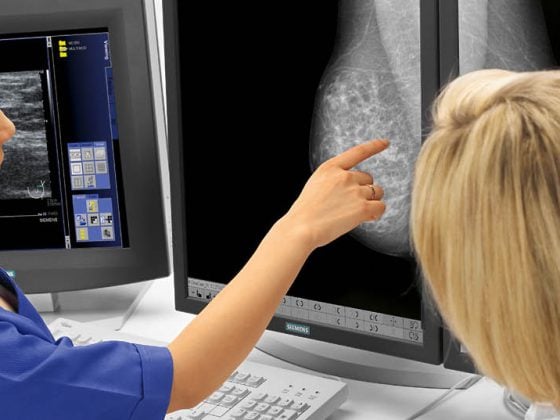Ten years ago, the results of the Women’s Health Initiative (WHI) had unsettled thousands of women and gynecologists [1]: Menopausal hormone therapy did not protect against cardiovascular disease, as previously thought, but more often caused heart attacks, strokes, breast carcinomas, and venous thromboembolism. Now the picture seems to have changed: “Renaissance of hormone replacement therapy” was the motto of the annual meeting of the German Menopause Society.
A comeback is expected after ten years of uncertainty [2]. “When evaluating the WHI data, all women were lumped together at that time,” says Prof. Alfred Mueck, MD, head of the Department of Endocrinology and Menopause at the University of Tübingen. “Today we know that these risks only apply to certain women. If you start early, the therapy is effective and safe.”
Do not demonize hormones
Since publication of the WHI, researchers have collected additional data, and the results were recently published. For example, scientists from the University of California showed that the risk of coronary heart disease and heart attack depends on the age at which a woman starts therapy [3]. If the last menstrual period was more than ten years ago at the start of therapy or if the woman was older than 60 years, this was associated with a higher risk. This was not the case for younger women. Moreover, the later hormone therapy was started after the last menstrual period, the greater the risk of stroke.
The results of the WHI study had also led to the discontinuation of the Danish Osteoporosis Prevention Study in 2002 [4]. This was a randomized, non-blinded, long-term study of 1006 women between the ages of 42 and 58. Half had taken 17-beta-estradiol, in combination with norethisterone if they still had a uterus. Over ten years, 16 women on hormones had heart attacks, were hospitalized for heart failure, or died (primary endpoint). In the control group, there were twice as many, 33. Mammary carcinomas, other types of cancer, venous thromboembolism or strokes were observed with similar frequency in both groups. The participants were followed for six more years after discontinuing the study (and estrogen therapy), with no change in outcome: fewer of the women on hormones had died, fewer had developed heart failure or had a heart attack. However, whether cancer really does not occur more often under hormone therapy cannot be ruled out with this study. This is because the observation period may have been too short or the number of cases too small.
The “time hypothesis”, i.e. that strokes and heart attacks occur more often the longer the menopause, can be explained: In older women, arteriosclerosis plaques are often already found in the blood vessels due to the lack of estrogen. “If you only start therapy then, the hormones cause the plaques to loosen and clog blood vessels in the brain or heart,” explains Prof. Mueck. On the other hand, if you start right after menopause, estrogens protect against atherosclerosis.
According to the new evaluations, breast cancer risk appears to be rather reduced by estrogen therapy alone. The hormones could also possibly protect against colorectal cancer, because women on hormone therapy were less likely to develop it.
“You have to decide individually whether to advise a woman to take hormones,” Prof. Mueck explained. “The woman must also know that not all complaints can be improved with it.” The hormones mainly help with hot flashes, sweating and dry vagina. They can also improve bladder weakness, and bladder infections are less likely to occur. The hormones can also alleviate complaints that are new or intensify during menopause, such as sleep disorders or mood swings. “If a woman wants hormones to make her feel better in general or to beautify her skin, I don’t prescribe them,” Prof. Mueck cautioned. “Estrogens can counteract skin aging, but you shouldn’t use them like cosmetics.”
Drug therapy
A variety of preparations are available today for hormone therapy. These are, on the one hand, various estrogens and progestins and, on the other hand, the artificial hormone tibolone (Livial®). “Estrogens must always be given in combination with progestins if the uterus is still there,” says PD Petra Stute, MD, head of the Center for Menopause at Inselspital in Bern. This is because estrogens alone increase the risk of endometrial cancer. Thus, in non-hysterectomized women, estrogen therapy should be combined with a sufficiently long course of progestogens, at least ten, preferably twelve to 14 days per month, or continuously. Women without a uterus receive only estrogens. Estrogens can be administered orally, transdermally, intranasally, or intramuscularly. “Which preparation is best for the woman depends on her other complaints and concomitant diseases,” Dr. Stute says. If a woman has symptoms mainly in the vagina, local therapy with an estrogen cream, tablet or vaginal ring may be sufficient. For women with chronic liver disease or who have had thrombosis in their legs before, patches and gels are more suitable. This is because hormones taken as tablets can activate the coagulation system in the liver due to the higher dosages, which increases the risk of thrombosis.
For some women, gynecologists clearly advise against hormone therapy: if they are currently being treated for breast or uterine cancer, have recently had a heart attack or stroke, or have liver disease. Here, the selective reuptake inhibitors venlafaxine or fluoxetine can relieve vasomotor symptoms; the antihypertensives clonidine and methyldopa do not seem to work well here. An alternative is the anticonvulsant gabapentin [5]. These medications are not approved for the treatment of menopausal symptoms, but may be used off-label after appropriate education.
Phytotherapy and others
When a woman first contacts him about menopausal symptoms, Dr. Stute is happy to suggest alternatives first. For example, mild symptoms improve in some women with herbal preparations or acupuncture, while relaxation exercises or sports help others. “However, we lack good studies on efficacy and side effects here.” For example, the majority of placebo-controlled studies with phytoestrogens in the form of isoflavone from red clover or soy and Cimicifuga racemosa have not shown a significant reduction in vasomotor symptoms [6]. Urogenital symptoms were not improved.
Because no statement can be made about the long-term safety of the preparations, some gynecologists advise against phytoestrogens, other herbal and non-hormonal therapies as an alternative to hormone therapy. Lifestyle changes can also alleviate vasomotor symptoms, as observational studies have shown [5]. For example, hot flashes can be reduced by low ambient temperatures, by regular physical exercise, normal weight if you are overweight, and if you stop smoking.
If you want to use hormones, you should start with a low dose and see if the symptoms improve after three months, advises Dr. Stute. If the hormones are well tolerated and help, the treatment is usually carried out for five years, in individual cases even longer. “You should see the patient annually and consider whether the therapy is still useful.” In general, hormone therapy should not be demonized. “Used properly, it can help a lot of women.”
Literature:
- WHI Study www.nhlbi.nih.gov/whi/
- Gynecology and Obstetrics 2012; 17(3): 26-29.
- Climacteric 2012; 15(3): 217-228.
- BMJ 2012; 345: e6409 doi: 10.1136/bmj.e6409 (Published 9 October 2012).
- Dtsch Arztebl Int 2012; 109(17): 316-24.
- JAMA 2006; 295: 2057-71.
HAUSARZT PRAXIS 2013; 8(1)











